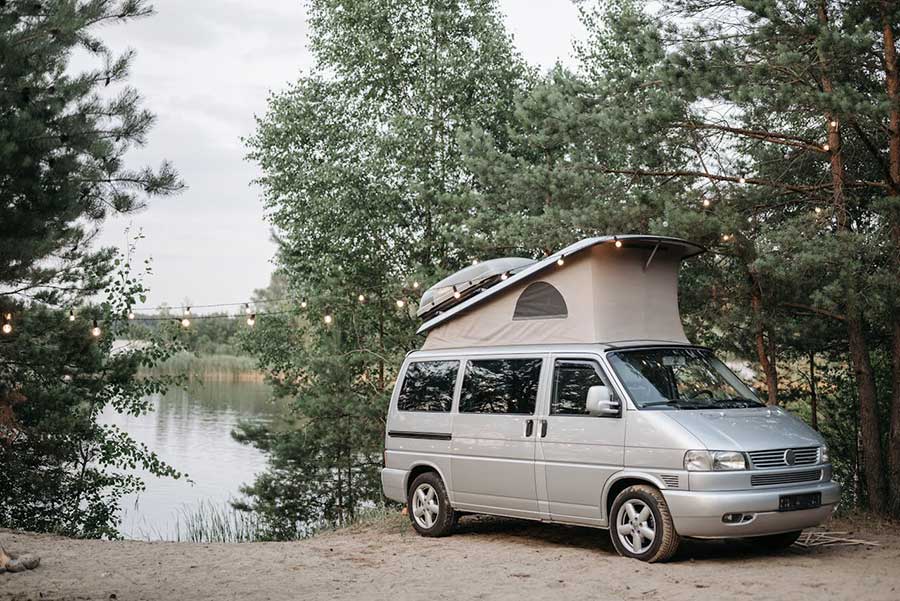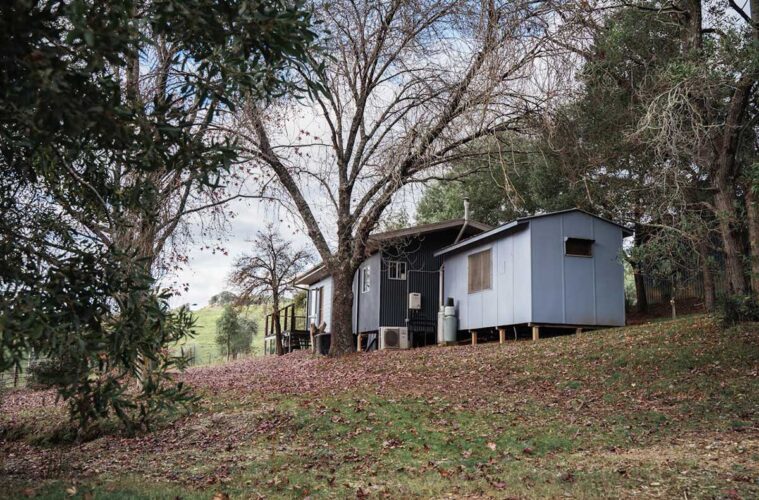In a world where urban living is becoming increasingly expensive and environmentally taxing, the idea of living off-grid has gained popularity. More people in the UK are considering leaving behind the conventional lifestyle, reducing their reliance on the national grid, and embracing a life of self-sufficiency. But what does it really take to live off-grid in the UK? This guide will explore the realities of off-grid living, including legal considerations, energy solutions, food and water sources, shelter options, and the pros and cons of this lifestyle.
What Does It Mean to Live Off-Grid?
Living off-grid means being independent from public utilities such as electricity, gas, water, and even food supply chains. This lifestyle involves using renewable energy sources, collecting and filtering water, growing food, and often embracing a minimalist way of life.
Some people choose to go completely off-grid, while others take a hybrid approach, relying on some public services while reducing their environmental impact.
Is It Legal to Live Off-Grid in the UK?
The UK does not have laws preventing people from living off-grid, but there are legal considerations:
- Land Ownership: You must either own land or have permission from the landowner.
- Planning Permission: If you build a home or structure, you may need planning permission, particularly for permanent dwellings.
- Water Rights: Collecting rainwater is legal, but diverting a water source like a stream requires permission from the Environment Agency.
- Sewage and Waste Management: Off-grid sewage systems must meet environmental regulations, often requiring a septic tank or composting toilet.
It’s always advisable to consult with local authorities before making any major decisions.
Finding the Right Land for Off-Grid Living
The key to successful off-grid living is finding suitable land. Here’s what to consider:
- Location: Remote areas are usually more affordable but may lack accessibility.
- Climate: The UK’s damp and cold winters can pose challenges for self-sufficiency.
- Soil Quality: If you plan to grow food, ensure the soil is fertile.
- Water Source: Natural water sources like rivers or wells are ideal.
- Sunlight and Wind: For renewable energy, the amount of sunlight and wind in the area matters.
Affordable land can often be found in Scotland or parts of Wales, where planning laws are sometimes more lenient than in England.
Generating Off-Grid Energy
Without access to the national grid, alternative energy sources are essential.
1. Solar Power
- The UK has an average of 4 hours of sunlight per day, which is enough to generate electricity with solar panels.
- Solar battery storage allows you to use power at night.
2. Wind Power
- Wind turbines can be a good supplement to solar power, especially in coastal or high-altitude locations.
- A small wind turbine can generate enough energy to power a home.
3. Hydropower
- If you have access to running water, micro-hydropower can be one of the most reliable sources of electricity.
4. Biomass and Wood Stoves
- Burning wood for heat and cooking is a common off-grid solution.
- Biomass boilers use wood pellets or logs to provide heating and hot water.
A combination of these methods is often the best way to ensure a reliable power supply year-round.
Water Collection and Filtration
Without mains water, you’ll need to find alternative water sources.
1. Rainwater Harvesting
- Rainwater collection is legal in the UK and an effective method for water supply.
- A filtering system is essential to make it drinkable.
2. Wells and Boreholes
- If your land allows it, digging a well or borehole can provide a long-term water solution.
- Requires permission from environmental agencies in some areas.
3. Filtration and Purification
- Water should be purified using filtration systems, boiling, or UV purification.
Food and Farming: Becoming Self-Sufficient
One of the biggest challenges of off-grid living is food production. Here are some options:
1. Growing Your Own Food
- Polytunnels or greenhouses extend the growing season.
- Potatoes, carrots, cabbage, and other hardy crops thrive in the UK climate.
2. Keeping Livestock
- Chickens provide eggs and meat.
- Goats are excellent for milk and cheese.
- Bees help pollinate crops and provide honey.
3. Foraging
- Wild food, such as berries, mushrooms, and edible plants, can supplement your diet.
4. Hunting and Fishing
- Hunting requires a license.
- Fishing is regulated, and you must check local rules.
Many off-grid residents also preserve food through canning, drying, and fermenting to ensure a steady food supply year-round.
Waste and Sewage Management
Living off-grid requires responsible waste disposal.
1. Composting Toilets
- These use natural processes to break down waste without water.
- No need for sewage connections.
2. Greywater Recycling
- Used water from sinks and showers can be reused for irrigation.
3. Recycling and Minimal Waste
- A zero-waste approach reduces the need for regular rubbish collection.
Staying Connected While Off-Grid
Just because you live off-grid doesn’t mean you have to be cut off from the world. Many people still use:
- Mobile internet with 4G or 5G routers.
- Satellite internet, especially for rural locations.
- Ham radio for emergencies.
Challenges of Off-Grid Living
While off-grid living can be rewarding, it’s not without its difficulties:
- Harsh Winters: UK winters can be long and cold, requiring good insulation and heating solutions.
- Initial Costs: Setting up solar panels, rainwater systems, and composting toilets can be expensive.
- Time-Consuming: Daily life involves more effort for basic needs like collecting firewood, growing food, and maintaining systems.
- Legal Hurdles: Some councils make off-grid living difficult due to zoning and planning regulations.
The Benefits of Living Off-Grid
Despite the challenges, off-grid living offers many advantages:
- Lower Living Costs: No electricity bills, water bills, or rent (if you own your land).
- Environmental Benefits: Reduced carbon footprint, reliance on renewable energy, and sustainable waste management.
- Greater Freedom: You’re not dependent on utility companies or rising energy costs.
- Stronger Connection to Nature: Living closer to nature improves mental and physical well-being.
- Self-Sufficiency: Learning survival skills and becoming self-reliant is incredibly rewarding.
Is Off-Grid Living Right for You?
Living off-grid isn’t for everyone. It requires dedication, adaptability, and a willingness to learn new skills. However, for those seeking a simpler, more sustainable lifestyle, it can be a fulfilling and liberating way of life.
Whether you’re looking for complete independence or just want to reduce your reliance on the grid, taking small steps—such as installing solar panels, growing your own food, or using rainwater—can bring you closer to a self-sufficient lifestyle.
Would you consider going off-grid in the UK? Let us know your thoughts!

Living Off-Grid in the UK: A Comprehensive Guide to Self-Sufficiency

